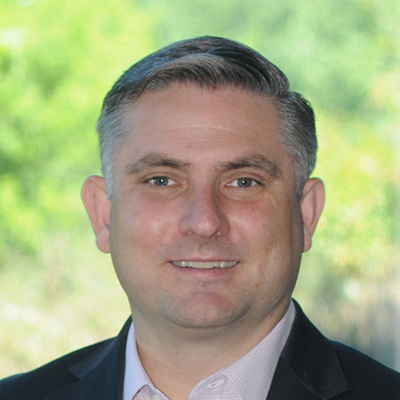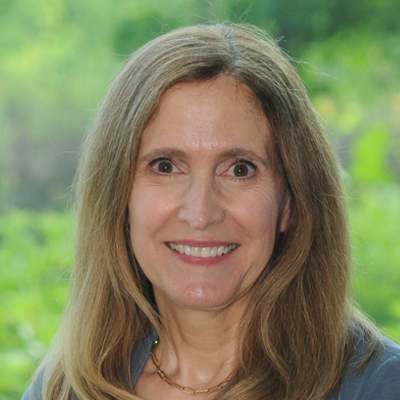
By Trent Sparrow
Manager, Impact Investments

and Amy Bulger
Director, Private Markets
January 27, 2023
In 2016, Wespath formally codified our Investment Beliefs document, which highlights the foundation of our investment philosophy, describes our thought process when investing, and explains how we think investing works.
We’ve reviewed and added to our Investment Beliefs over time—for example, in 2018, we added an additional belief related to the global transition to a low-carbon economy. In 2022, Wespath again reviewed our Investment Beliefs, reflecting on our learnings from the past several years and seeking new ways to communicate the beliefs which underpin our investment approach. Now, in 2023, we are releasing our updated Investment Beliefs.
Naturally, this news will prompt a few questions. Did something change? Does Wespath believe something now that it didn’t back in 2016? Is Wespath changing the way that it invests? The answer to all these questions is the same: No. Our core convictions have not changed, and our overall investment approach is the same. This reflects our main goal for this update process—not to change elements of our investment approach, but to improve how we describe that approach to our investors and participants.
So, what is the refreshed Investment Beliefs document all about then? Let’s see if an analogy can help explain.
Picture your favorite movie franchise. Star Wars. James Bond. Spider-Man. Sometimes these franchises like to “reboot” the original story, and reboots can be exciting! A classic tale now has a chance to be produced for today’s high-definition televisions and movie screens with the latest and greatest technology. Plus, it’s still your favorite franchise—it’s got the classic characters and storylines, but with modern updates, color correction, better sound and more.
Similarly, our 2023 Investment Beliefs are rooted in the same beliefs that contributed to past success while benefitting from a few tweaks.
The result is a simple, easy-to-navigate set of categories highlighting our investment beliefs and centered on five things: 1) fiduciary focus, 2) integrated sustainability, 3) active management and engagement, 4) diversified, long-term perspective, and 5) culture based upon professionalism, integrity and diversity.
As you can tell, one notable change is that we’ve consolidated our Investment Beliefs from 10 total belief statements to five belief categories—now accompanied by underlying support statements. Here’s a look at how each belief’s name evolved:
-700x515.png)
While these beliefs may look and sound a bit different, readers will recognize much of the supporting context and language.
To better explain, let’s return to our filmmaking analogy. Similar to how a franchise reboot might benefit from 4K cameras, we addressed any metaphorical “scratches” or “discoloration” in our previous document by refining certain statements and adding clarifying language. Additionally, just as a modern movie set would involve top-notch audio equipment, we considered whether any statement would benefit from a “boost of the audio” to make it more prominent and easier to understand.
Finally, we had a whole crew involved. “Rebooting” our Investment Beliefs was time intensive and involved our Investments division, a rigorous review by our Senior Leadership Team, and ultimately a final approval by the Fiduciary Committee of Wespath’s Board of Directors.
Fiduciary Focus
A fiduciary is someone who acts solely in the interests of others. In investing, a fiduciary must act in the best interest of its clients—always putting its clients’ interests above its own. This Investment Belief unequivocally states our fiduciary commitment to both our participants and institutional investors.
We recognize that every participant and investor has distinct financial goals. These varying types of investors face unique considerations, but they share a need for investment solutions that safeguard their assets and provide reliable returns. We seek to deliver those solutions by administering an investment process that aims to provide financial security to all our stakeholders, whether they participate in a defined benefit pension plan, utilize our other retirement plans or invest their organization’s institutional assets with us.
Integrated Sustainability
This Investment Belief consolidates our previously published “Sustainability” and “Low-Carbon Transition” beliefs into a cohesive recognition of the wide array of relevant information that we believe investors must consider.
Ultimately, considering all material information—both traditional financial information and sustainability information—can impact financial outcomes and contribute to potential risks and opportunities related to our investments. As such, we firmly believe that weighing all relevant information can improve the quality of investment decisions and, ultimately, investment returns.
This belief category also describes our commitment to investing in alignment with Methodist values and our support for a sustainable global economy.
Active Management and Engagement
This Investment Belief covers our perspective on two distinct, but related, aspects of how we believe financial markets work.
The first concept is active management. Active management is an approach to investing that seeks to add value, or deliver additional returns, compared to a traditional investment index or benchmark (i.e., the S&P 500 or the Russell 3000). Wespath partners with external asset managers to invest the assets in the funds we offer. Some of our managers adopt active management strategies. Because we believe that market efficiency varies and that active management is more successful in less efficient markets, we’ve hired managers that specialize in finding opportunities to add value in those areas.
We also believe a crucial element of our role at Wespath is to apply a thorough process to selecting and monitoring skilled asset managers that can achieve our return expectations (also read: Uncovering Investment Talent: An Asset Manager Due Diligence Overview).
The second concept in this belief category is engagement—also referred to as “active ownership” or “stewardship.” We engage with our external asset managers, public policy makers and the companies in which we invest—primarily on the themes covered throughout our Investment Beliefs, especially the need to incorporate all relevant information and build support for a sustainable economy.
Diversified, Long-Term Perspective
In this belief, we consolidated three of our initial Investment Beliefs (“Long-Term Perspective,” “Diversification” and “Optimistic Worldview”) into one belief category that highlights our commitment to a diversified, long-term perspective.
Wespath’s Karen Manczko, Director of Institutional Relationships, said in a recent blog post, “sound risk management—or risk control, should always be based on balancing risk and reward rather than focusing solely on one factor or the other.” This sentiment is at the core of this belief category.
Our participants are preparing for or living through retirement, and our institutional clients generally want to go on fulfilling their missions in perpetuity. These time horizons explain why we take a long-term focus.
In our view, the most important driver of long-term returns is asset allocation, while prudent diversification can also improve risk-adjusted returns. This basically describes the concept of not putting all your eggs in one basket. Investors have a lot of choices when deciding what to invest in. All these choices have different risk/return characteristics. Choosing to invest in many things rather than a few (diversification) can smooth out some of these risks, and what you decide to invest in (asset allocation) will explain much of the return you ultimately achieve over the long-term. We also seek to provide products and services—including LifeStage Investment Management, an extensive suite of funds, and top-notch customer support—that assist participants and clients with these choices.
But a long-term focus can also introduce unknowns. Large-scale changes and major evolutions can impact us. We recognize and embrace this, acknowledging the “megatrends” affecting economies and remaining optimistic about human resiliency and innovation. This provides us with compelling reasons to stay invested over long periods of time.
Finally, we recognize our stakeholders may have different goals and measurements of success. Our broad range of products across a variety of asset classes allows for our stakeholders to customize their investment profile to suit their needs, goals and investment objectives.
Culture Based Upon Professionalism, Integrity and Diversity
Living into our Investment Beliefs would not be possible without our team showing up every day to work on behalf of the best interests of our participants and institutional investors. This is exactly what we are trying to capture in this final belief category.
Wespath has long sought to foster an organizational culture that values diversity and inclusion and lives into our core values of integrity, teamwork, mutual respect, customer satisfaction, spirituality and stewardship. We believe that doing so makes us better at both investing and servicing our diverse stakeholders.
This fifth belief—and all of Wespath’s Investment Beliefs—are informed by over a century of investing on behalf of our beneficiaries and clients. We are confident that this approach will help us serve them for another 100 years, and beyond.
We have updated our website with a new look and made it simple to navigate on any device.
We will continue to add more valuable information and features. Please let us know how we are doing.
P.S. For plan sponsors and plan participants, we have a new look for you too. Check out the Wespath Benefits and Investments website.
